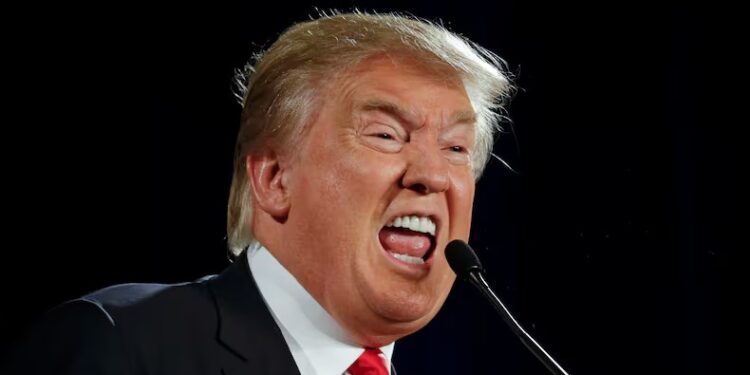Washington, D.C. – In a move poised to reshape global travel and diplomatic relations, President Donald Trump today, 5 June 2025, signed an executive order enacting a sweeping ban on citizens from twelve specific countries entering the United States. The directive, effective immediately, cites stringent national security concerns as the paramount reason for its implementation.
The executive order’s details, though still being fully clarified, mandate an indefinite suspension of entry for individuals holding passports from the dozen nations in question. While the complete list of affected countries has not yet been officially released by the administration, pending logistical dissemination to relevant agencies and international partners, sources suggest the focus lies on nations deemed to pose elevated security risks or those whose governments are assessed as having insufficient information-sharing protocols with Washington. The scope of potential exemptions for permanent residents or certain categories of visa holders remains a critical point of uncertainty, sparking immediate confusion and anxiety among travellers and diplomatic missions worldwide.
Speaking from the Oval Office, President Trump underscored the paramount importance of safeguarding American citizens and bolstering the nation’s borders. “We are unequivocally putting America First,” he declared, “and that commitment demands that only those who genuinely wish us well, and who can undergo rigorous vetting, are permitted entry to our country. This measure is about national security, fundamentally and without compromise.” The administration asserts that this executive action is a vital step to counter evolving terrorism threats and prevent potential infiltration, arguing that previous vetting procedures were inadequate for the designated nations.
The announcement has already triggered a cascade of strong reactions from international bodies, leading human rights organisations, and affected communities globally. Human rights advocates were swift in their condemnation of the order, characterising it as a discriminatory act that amounts to collective punishment against entire populations. Prominent groups such as Amnesty International and Human Rights Watch have labelled the ban discriminatory and potentially unlawful under various international conventions, indicating their intent to challenge its legality through all available judicial avenues.
Key allies of the United States have also expressed considerable concern, with several European capitals reportedly seeking urgent clarification from Washington. Diplomatic sources in Brussels and London indicated a palpable sense of dismay, expressing fears that the order could significantly exacerbate existing geopolitical tensions and complicate crucial ongoing international cooperation efforts across security and migration fronts. There are also immediate and tangible concerns about the potential economic ramifications, particularly for the travel and tourism sectors, which rely heavily on unfettered international movement. Airlines and travel agencies are bracing for widespread disruption and a potential sharp downturn in bookings.
Domestically, the executive order is widely expected to face immediate and vigorous legal challenges from civil liberties groups, setting the stage for what could become a protracted battle in the federal courts. Conversely, staunch supporters of the Trump administration are anticipated to champion the move as a decisive fulfilment of key campaign promises to prioritise national security and enforce stringent immigration controls.
As airports around the globe prepare for the immediate operational implications, and legal teams ready themselves for impending court filings, President Trump’s latest executive action unmistakably signals a renewed commitment to an assertive and, at times, unilateral approach to immigration and security policy. The full extent of its impact, both humanitarian and geopolitical, will undoubtedly continue to unfold in the coming days and weeks.
newshub finance



Recent Comments